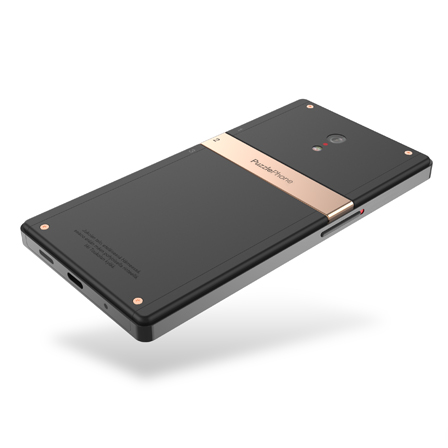The SollinEr yacht is powered by solar panels fitted on top of an automatically retractable roof. The boat can accelerate to 12 km/h. It runs silently and even on a cloudy day. When fully charged, it can cruise at night for 18 hours. Thanks to its aerodynamic hull, the water resistance is especially low. Light materials also reduce the weight of the yacht. The boating experience is thus improved and resource consumption is reduced.
The focal elements in the development of the Inspiro metro platform were energy efficiency and environmental acceptability – all the way from production up to daily operation, as well as almost complete recyclability. The weight of a six-train has been reduced by around 18 tonnes through lightweight construction and a weight-optimised chassis. Due to the pleasant interior design, passengers enjoy their travel time and use the metro more frequently.
StreetScooter has developed an electric mobility concept especially for Deutsche Post. The eco-friendly E-utility vehicle was developed with the requirements of the delivery of letters and parcels in mind, reducing the physical strain for the carrier. The lightweight construction keeps production costs low, while the modular system enables the production of different versions of the vehicle.
CoremanNet enables a circular economy with a smart IT solution and an international logistic network. One example for the circular economy approach is the remanufacturing of used parts within the automotive industry. Used parts are collected, identified, evaluated, and sorted before being returned to a defined destination for future processing. During the remanufacturing process, the components are dismantled, cleaned and replaced. The remanufactured parts, all of equal quality, are more affordable than new components and protect the environment by saving CO2, energy, and raw material.
The non-profit organisation Tevo namai is engaged in the re-socialisation of former prisoners. By offering training programs that focus on the former inmates’ skills, the organisation initiates new business opportunities. One of these training programs focuses in particular on the recycling and upcycling of used vehicles: the former convicts are recruited for car service companies, where they remove damaged car parts in order to repair and to refurbish them for reuse or sale. By doing so, the project facilitates the circulation of otherwise dismissed materials into the production chain, and enables the return of former prisoners into business and society. The foundation is also engaged in pollution control: together with a partner, the project produces and distributes biological probiotics that are used for the cleaning of sewage and polluted waters.
In 2015, close to 2.5 billion people lacked access to basic sanitation worldwide. Lack of sanitation is a major contributor to diseases like diarrhoea and cholera, killing over a million children every year. Peepoo is a personal, single-use toilet that sanitises human excreta shortly after use, thereby preventing faeces from contaminating the immediate environment as well as the surrounding ecosystem. Ergonomically designed and using the minimum amount of material necessary to provide maximum hygienic sanitation, Peepoo is cost-efficient to produce. Since Peepoo is affordable for those with the weakest purchasing power, it offers a sanitation choice that benefits both individuals and society as a whole.
Better Shelter is designed to help the millions of people worldwide who have fled armed conflicts, persecution or natural disasters. It is a temporary one room post-emergency shelter with semi-hard, opaque walls. Better Shelter has four windows, a lockable door and a high ceiling, enabling users to stand upright inside. Its modular design makes it adaptable for different uses and locations. The shelter can be anchored to the ground and will withstand rain, snow and strong winds. It can easily be dismantled, moved and reassembled. Components of the Better Shelter units can be replaced individually, the roof and wall panels are recyclable. A solar powered lamp provides light during the hours of darkness. The shelter is designed to provide residents with a higher level of safety, security and dignity than a tent.
SOLARKIOSK provides clean and affordable energy to regions that previously relied on costly, polluting energy. It operates as an independent energy source for the rural population in off-grid communities. Solar panels and batteries generate solar energy independently from the power grid. The kiosk can run for three days after only five hours of sunshine, either to charge mobile phones or to cool medication. SOLARKIOSK also offers an inclusive business model cooperating directly with local people and developing their community. The electrical components are manufactured in Germany, and local materials are used for the remaining parts. SOLARKIOSK can thus be assembled anywhere, thanks to its modular building structure designed by GRAFT.
RagBag facilitates complication-free donation of clothing. Folded inside-out, the shopping bag turns into a pre-stamped shipping bag. The clothing donation must only be placed into the shipping bag and put in the post. Consumers thus support aid organisations and extend the life cycle of the used clothing. The project was initiated by the sustainable fashion brand Uniforms for the Dedicated.
PuzzlePhone is a long-lasting smartphone with three easy-to-change modules: the critical electronics, the display and the battery. This makes the PuzzlePhone easy to upgrade, easy to customize, and easy to repair. In addition, the PuzzleLab provides companies and brands who wish to join the project with a ready-made standard: the PuzzlePhone Open Standard ensures that both firmware and hardware of accessories as well as upgrades are fully compatible and interchangeable. PuzzlePhone is currently under development. It is designed, engineered, manufacturedand assembled in Europe.









